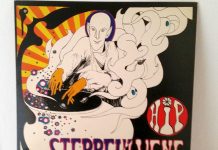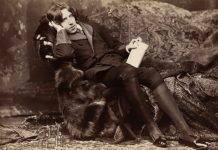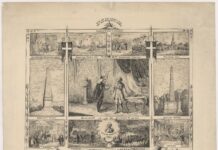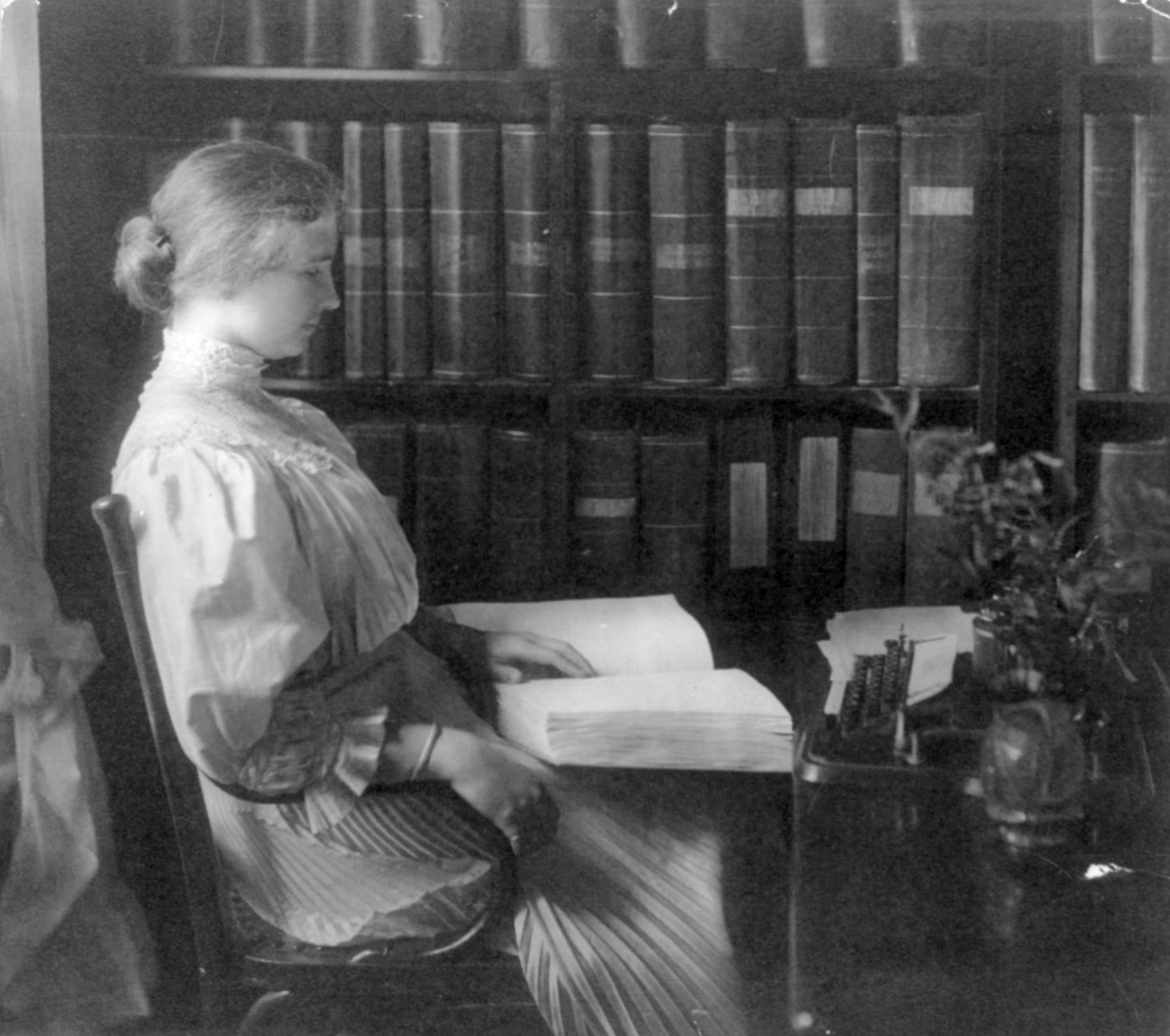
Socialistisk Biblioteks Tidslinje med links til begivenheder og personer i 1880.
Se også Index over personer, organisationer/partier og værker (som bøger, malerier, mm.), steder, begivenheder, mv., der er omtalt på hele Tidslinjen, titler og indhold på emnelisterne osv.
[sta_anchor id=”18800627″ /]
27. juni 1880
Den døvblinde Helen Adams Keller fødes i Tuscumbia, Alabama. (Dør 1. juni 1968 i Westport, Connnecticut). Medlem af US Socialist Party 1909.
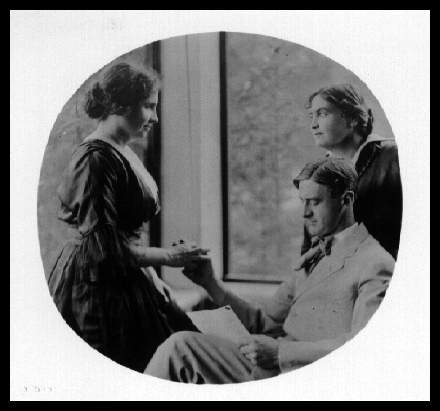
Links:
- Helen Adams Keller (Denstoredanske). Dansk introartikel.
- Helen Keller (Spartacus Schoolnet)
- Helen Keller (Wikipedia.org). Med links, især Politics
- Helen Keller Reference Archive (Marxists Internet Archive; Reference Writers). Introduction, Works, Biography, Links. Inkl. How I became a socialist (1912)
- Selected writings and speeches by Helen Keller (International Socialist Review, Issue 96, Spring 2015)

Helen Keller was one of the great American socialists. By Keith Rosenthal (Jacobin, April 1, 2023). “Helen Keller forged her political ideas in the golden age of American socialism and was patronizingly dismissed by conservative commentators who had previously celebrated her. Keller’s passionate radicalism should be remembered and reclaimed by the Left today.”
Helen Keller’s Socialism has been whitewashed. By Eileen Jones (Jacobin, June 4, 2021). “You wouldn’t know it from the whitewashed image of her as an angelic, unthreatening icon, but Helen Keller — yes, that Helen Keller — was a socialist.”
Remembering the Socialism of Helen Keller. By John Gianvito (Jacobin, May 17, 2021). “Helen Keller is well known to Americans as a writer, educator, and advocate for the disabled. But few know of her commitment to socialist politics as the route to a more just world.”
Helen Keller’s Socialism. By Keith Rosenthal (New Politics, No.70, Winter 2021). “A documentary on Helen Keller that is both inspiring and edifying.”
The politics of Helen Keller: Socialism and disability. By Keith Rosenthal (International Socialist Review, Issue 96, Spring 2015). “That she was a serious political thinker who made important contributions in the fields of socialist theory and practice, or that she was a pioneer in pointing the way toward a Marxist understanding of disability oppression and liberation—this reality has been overlooked and censored.”
The radical dissent of Helen Keller. By Peter Dreier (Truthout, April 18, 2015). “Here’s what they don’t teach: When the blind-deaf visionary learned that poor people were more likely to be blind than others, she set off down a pacifist, socialist path that broke the boundaries of her time—and continues to challenge ours today.”
Who stole Helen Keller? By Ruth Shagoury (Common Dreams, June 26, 2012). “… textbooks and children’s literature distort her life’s work, and miss key opportunities to inspire young people to make a difference in the world.”
Helen Keller: Saint, socialist, subversive. By Sasha Callaghan (Socialist Review, Issue 345, March 2010). “The story of Helen Keller’s ‘triumph over tragedy’ is widely known. But her commitment to socialist activism was less known.”
Why men need woman suffrage By Helen Keller (Frontline, Vol.1, No.19, 2006). “She was an opponent of war and a supporter of universal suffrage, which she argues for in this article.”
The hidden history they won’t teach. By Paul D’Amato (Socialist Worker, US, Issue 531, February 18, 2005). “Alarmed at Keller’s newfound radicalism, the mainstream press insisted that the deaf, dumb and blind woman had been manipulated and duped.”
(YouTube.com; 28:42 min.). Helen Adams Keller in her story (June 27, 1880 June 1, 1968) was an American author, political activist and lecturer. She was the first deafblind person to earn a Bachelor of Arts degree.The story of how Keller’s teacher, Annie Sullivan, broke through the isolation imposed by a near complete lack of language, allowing the girl to blossom as she learned to communicate, has become known worldwide through the dramatic depictions of the play and film The Miracle Worker. A prolific author, Keller was well traveled and was outspoken in her opposition to war. She campaigned for women’s suffrage, workers’ rights, and socialism, as well as many other progressive causes.
[sta_anchor id=”18801111″ /]
11. november 1880
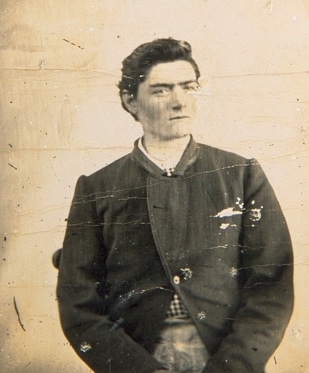
Den australske bandeleder Ned Kelly bliver hængt i Melbourne. Hans folkeligt populære figur, især pga. hans baggrund blandt irske indvandrere, er skildret i mange film m.m.
Links:
- Ned Kelly (Denstoredanske.dk). Kort dansk artikel.
- Ned Kelly (Wikipedia.org) + en kort dansk intro. Se også artiklen Ned Kelly in popular culture.
Outlaw Ned Kelly left behind a Manifesto for the ages. By Daniel Lopez (Jacobin, July 13. 2021). “Ned Kelly is Australia’s most famous and beloved outlaw. He didn’t only defy the colonial police, he also left behind a revolutionary manifesto decrying oppression and poverty that demands to be read.”
Class struggle, Ned Kelly and the Jerilderie Letter. By Trevor Bark (Anarkismo.net, November 30, 2007). “This is a tirade against the law and injustice written by Ned Kelly.”
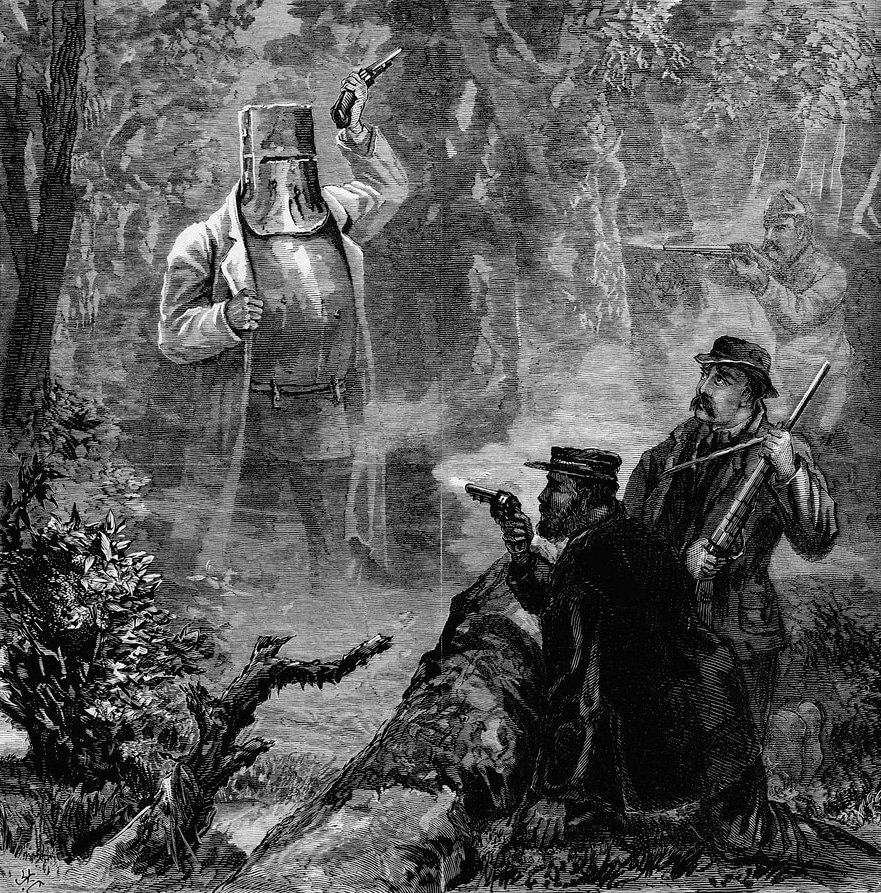
Ned Kelly: Australia’s most famous rebel. By Anthony Main (The Socialist, October 2, 2005). “… how did an outlaw bushranger who robbed banks and killed police come to be known as an honourable folk hero and a symbol of rebellion?”
Outlaw Nation. By Kellly Macdermott (Socialist Review, Issue 278, October 2003, p.27). “… wherever people fight back against oppression, Kelly lives.” Review of Gregor Jordan’s film, Ned Kelly (2003). See also review by Bear Brear, Ned Kelly: freedom fighter or villain? (Green Left Weekly, Issue 533, April 8, 2003).
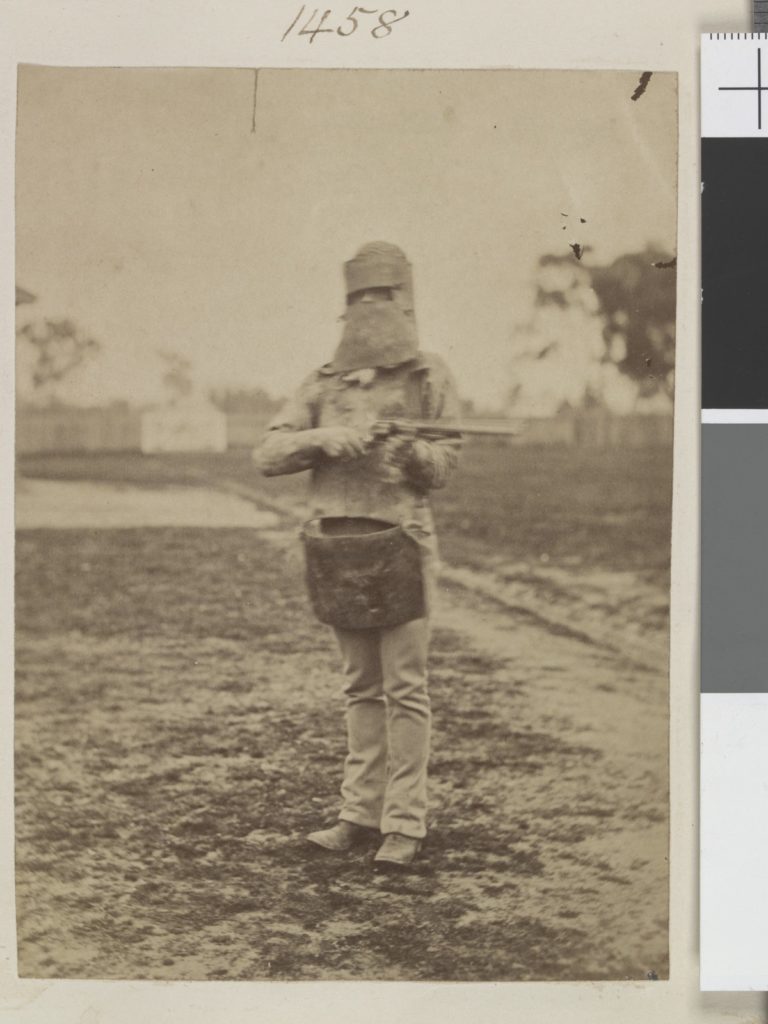
[sta_anchor id=”18801222″ /]
22. december 1880
Den engelske forfatterinde George Eliot dør. (Født 22. november 1819, se denne).
















